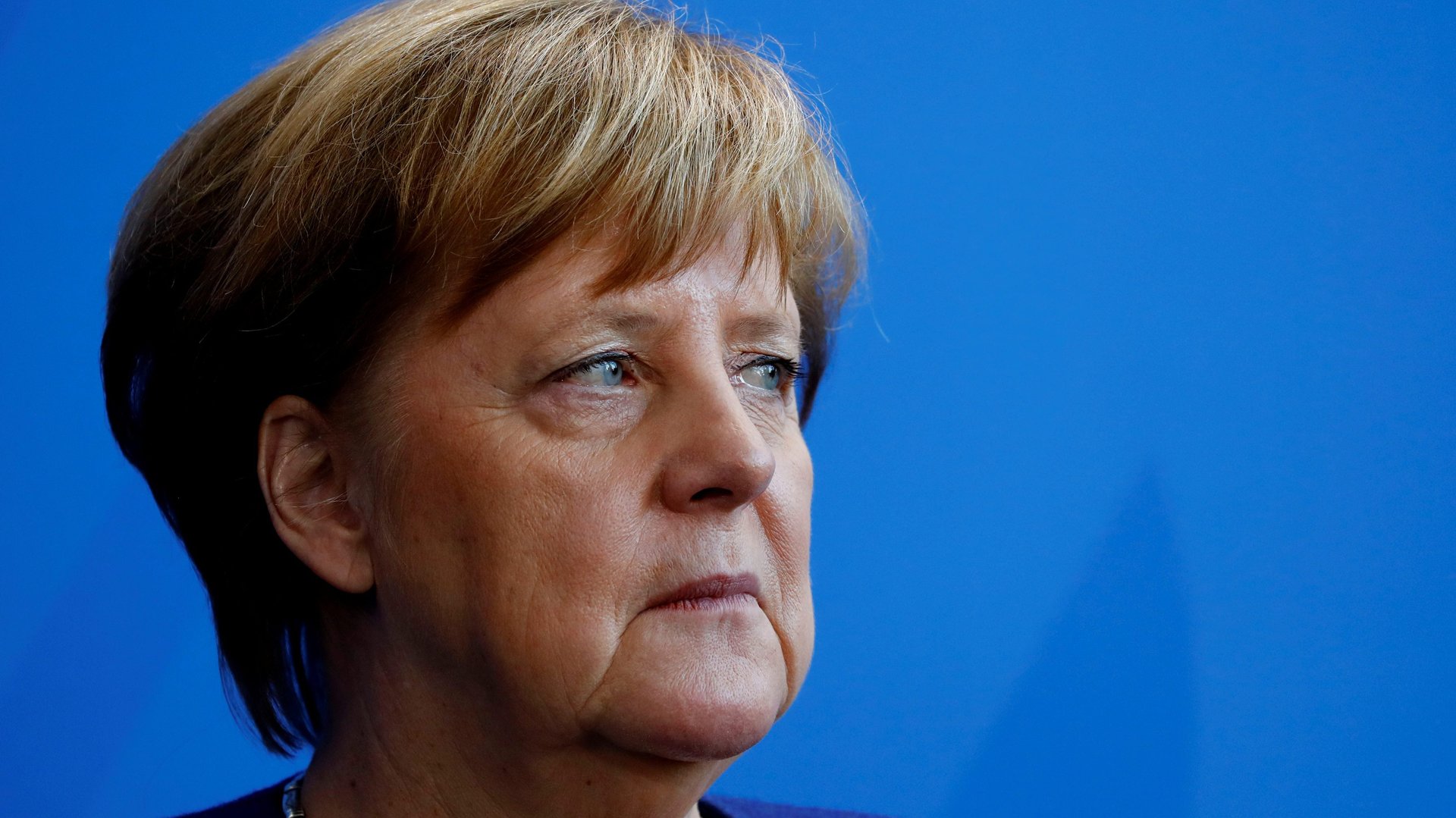Germany’s shrinking economy is raising fears of a euro zone recession
German GDP shrunk 0.1% in the second quarter, data out today show, raising fears that the country is about to enter a recession and that a slowdown in euro-zone growth is here to stay.


German GDP shrunk 0.1% in the second quarter, data out today show, raising fears that the country is about to enter a recession and that a slowdown in euro-zone growth is here to stay.
The decline reverses the 0.4% growth seen in the first quarter, and was driven by a slowdown in trade—exports dropped more than imports—and construction, according to the country’s Federal Statistics Office.
The data illustrate the degree to which concerns about the US-China trade war, as well the UK’s upcoming departure from the EU, are impacting Europe’s largest economy. The UK is one of Germany’s largest markets for car sales, and last week reported its first decline in GDP on a quarterly basis in nearly seven years.
The European Central Bank last month announced it is preparing easing measures, including a potential rate cut, to try stimulate the euro-zone economy, which only grew 0.2% in the second quarter.
The contraction in Germany’s economy marks the end of what some have called a “golden decade” for the country, which saw growth average 0.5% on a quarterly basis. Still, the decline wasn’t all that unexpected, given that Germany has recently battled stagnation and averaged 0% growth since the third quarter of last year.
Some economists and the powerful Federation of German Industries, which represents 100,000 companies in the country, are urging chancellor Angela Merkel to enact looser fiscal policies to kick start the economy. She dismissed the idea of fiscal stimulus yesterday.